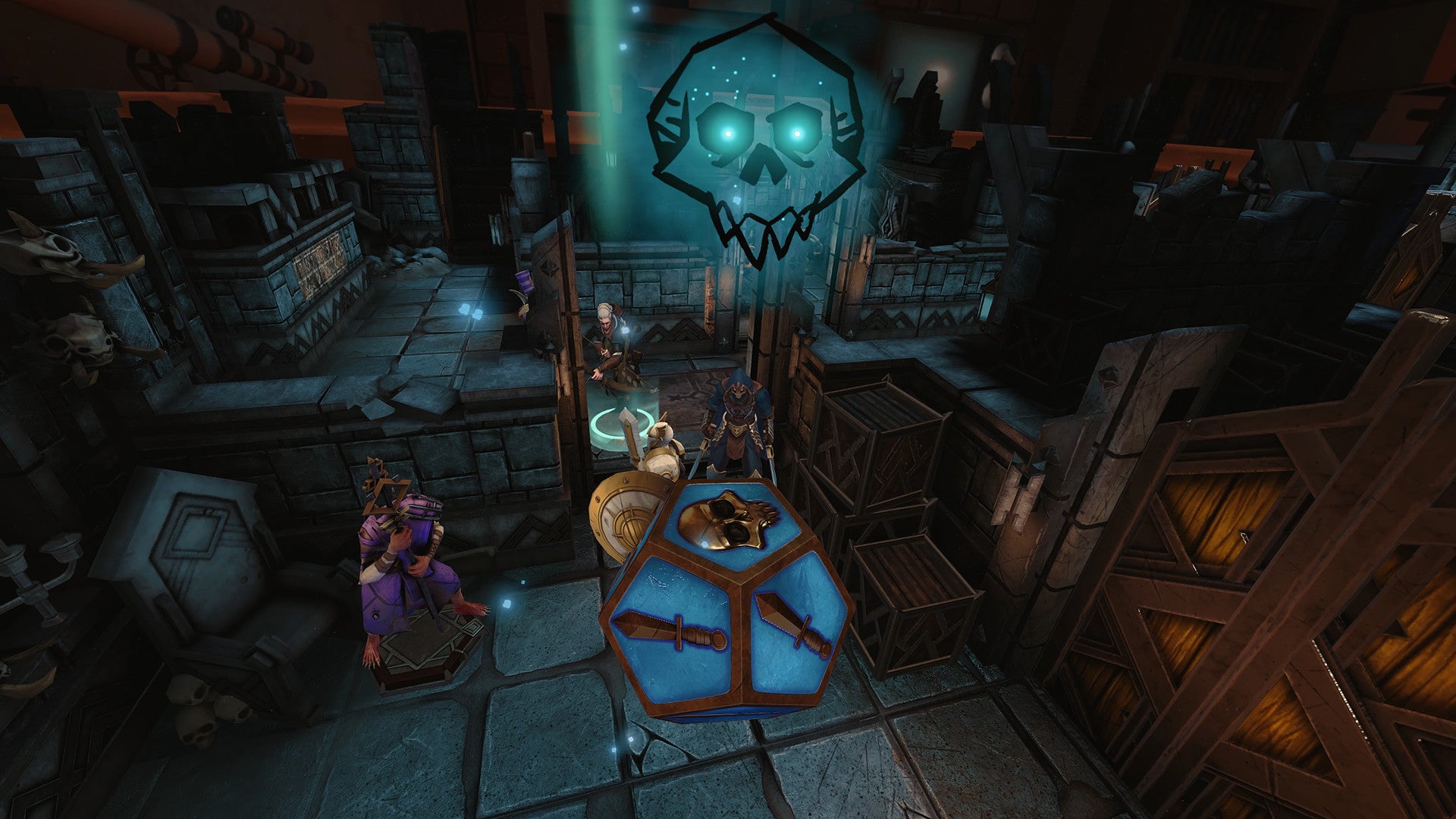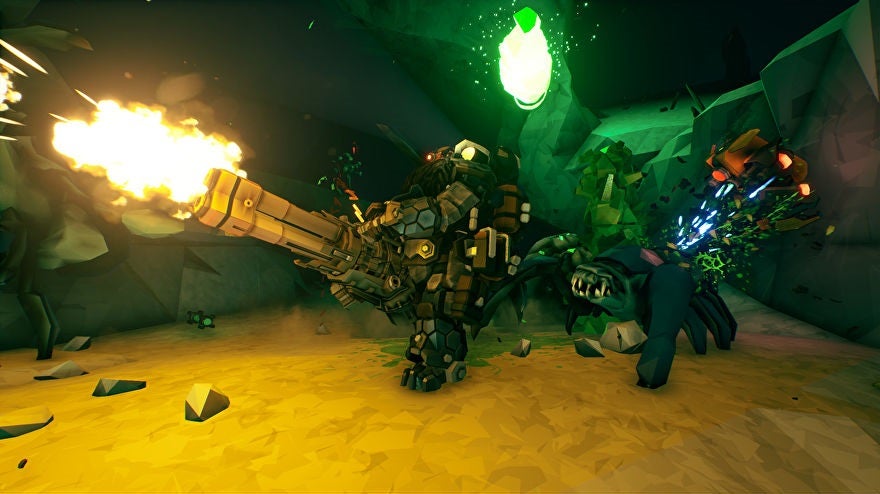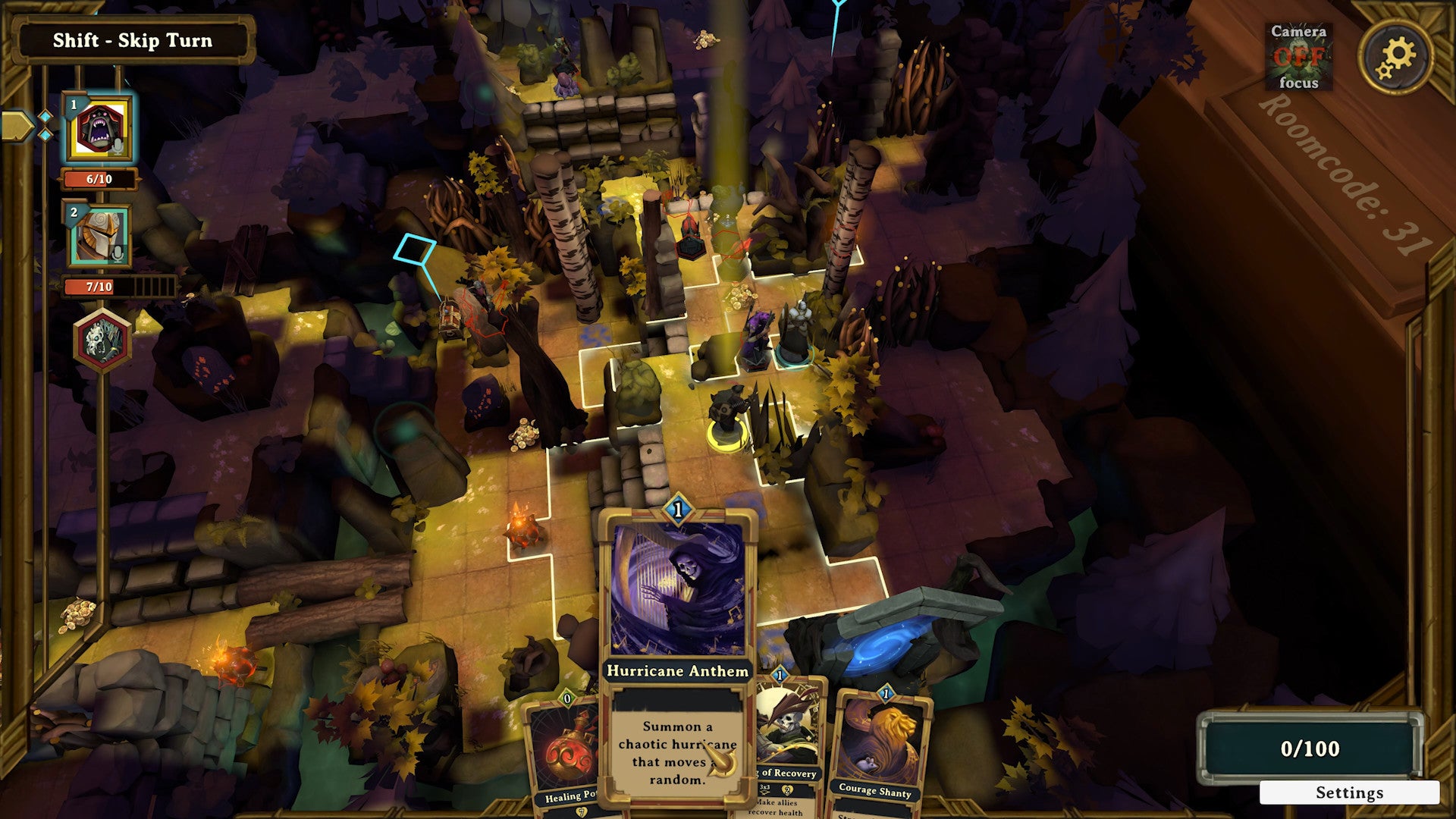A streamlined, high production values version of Dungeons & Dragons, Demeo won a lot of “best of” accolades in VR game round-ups. But soon it’s coming to regular ol’ PCs, with early access starting on April 7th. I spoke to Booth about Demeo, but also the future of co-op games. He had quite a lot to say. “If you look at the through line of my career, it’s really been online multiplayer innovation, and I think Demeo’s a prime example of that,” he says. For Booth, the cool thing about VR is not just that you’re completely in the virtual environment, but that with VR co-op you feel like you’re there in person with other people. With Demeo, Booth wants to capture the fun moments of socialising that he really enjoys - playing TRPGs with friends, or game nights where you get together and play card games or board games. “With something like Demeo, you just turn it on and there’s the whole dungeon layout, on the table in your basement, and you got your polyhedral die that you can throw, and everyone’s got their miniatures they can move around, but the game handles all the details for you,” he explains. “We can have all the effects, explosive fireballs and acid sprays, and arrows actually zipping across, that you can’t do - well, that’s very hard to do on an actual tabletop surface.” There are, though, a bunch of games - VR and otherwise - that try to replicate the authentic tabletop experience. Demeo does a few things to try to capture that authentic “standing around a table” feel. The team decided early on, for example, that the miniatures representing the player characters and enemies would not be animated (save for a few rare circumstances). Something Booth said he was very adamant about was the die. “We have to have a die, it needs to be a polyhedral die, you need to roll the die, it needs to bounce around and then land so everyone’s watching and going ‘whooooooooaaaaah-oh!’ and you get that anticipation of, what’s it going to be?” The team also playtested the game for three years before launch to get the balance right, including on the AI. “I’m a big believer in build it quick, get into it, get your hands on it, start playing it, and then iterate and find the fun and really hone, really polish,” says Booth. His most famous AI creation, of course, is Left 4 Dead’s famous Director, and for Demeo, Booth says he was mostly instructing the lead game designer on how to build an AI for this kind of game. “Here’s a little titbit that everyone gets wrong, and Resolution got very right here,” he adds. “You don’t want to actually, behind the scenes, roll the die on individual things. You want to make a virtual deck of cards, shuffle it and deal it out.” Here Booth mimed the actions in question with an invisible deck of cards. “So that way it’s not possible to get the terrible thing happening 17 times in a row - I know it’s very unlikely, but it’s possible [with die]. If it’s in a deck of cards, and it’s only one card, it can only happen once.” Will the mysterious Steam algorithm be any more forgiving, though? Demeo may have won several accolades in VR, but whether those will carry over to PC remains to be seen. Booth, however, is confident that the non-VR version of Demeo won’t lose much in translation. Resolution have added new camera controls to move and look around, and the PC version has crossplay with VR as well. “I think we’ve got a really good first stab. It plays really well, and I think we get a lot of the same fun that we do in VR,” says Booth. “Because really it comes down to your friends. This is, especially in current times when it’s a little bit difficult to get together in person or to travel, to be able to get together around a tabletop game like this… I think that’s really valuable, regardless of the platform that’s on.” Right now we’re having a bit of a moment for online co-op games. There’s Back 4 Blood, The Anacrusis, Arkane’s upcoming Redfall… Booth said he’d also been playing a lot of Deep Rock Galactic (“Rock and stone, brother!”), which he thinks has “hit the Left 4 Dead sweetspot” with a great story, cool environment and interesting creatures. I asked what game he wished he worked on, but didn’t, and the first thing that came to mind was Minecraft. “Someday I really want to make a game that is so procedural that when I play it I don’t know what’s going to happen. Minecraft is not that game, but it’s like… in that direction.” I suggested that this could be trends cycling round. It’s tempting to point to the pandemic as a reason people want more online, socially distanced co-op games, but Booth said he thinks that the recent pandemic has just accelerated something that was already happening. People spend a lot of their life online these days, and spend a lot of time with online communities in various ways. It’s a trend he thinks is going to continue; it’s just been exacerbated by people not being able to be with each other physically for the past couple of years. “You know, we talked about some of my previous titles, some of that was 12 years ago,” he says. “Now we have gigabit broadband internet connections to each other. The things we can do now are insane. It’s just wonderful, technology-wise. I think people are like, ‘Well, why can’t we do this? Why are you not letting us do this?’ And the answer is: it’s complicated. It’s hard.” He pointed all the way back to people having team deathmatch sessions in Doom and Quake, and how that’s a throughline to online multiplayer today - but people want more, and there will be more games with structures where players can have an adventure of their own. But, he says, it’s a mental shift for developers: “Game designers have to think in that way, and make things replayable. For example, I just played The Last Of Us 2, which was absolutely glorious, beautiful in every way. That was a beautifully handcrafted linear narrative. But I think for what we’re talking about here, you need to make things that are more procedural, more replayable so you can have a destination that people come back to over and over again like a hangout. I think those sorts of games are going to be more and more in demand in the future.” I asked Booth if he thinks what people want from co-op games has changed over the years. “You know, my gut reaction to that is no! There just haven’t been enough good examples for them to play,” he says. “I think the challenge is that it’s hard to make a co-op game. It’s hard to make a good co-op game. Because you have to build the game from the beginning assuming that it’s co-op. To design a game assuming that you have to work together to win the game, and not in a punitive way, in a way that players want to do that, and it feels great, is a fundamentally different way of thinking and designing a game around that,” he explains. “And there just aren’t enough yet. There still aren’t enough. “I’m going to keep pushing on this stuff. I’m going to keep building co-op experiences,” he says. “Because there’s nothing as powerful as having an exciting adventure with crazy intense moments, with your friends! And they’re all like, ‘Oh my god, I can’t believe you did that!’ or, ‘Dude, what, you opened that door, we agreed not to do that!’ All these things happen and you get these great stories, and to me that’s the most valuable thing.”


